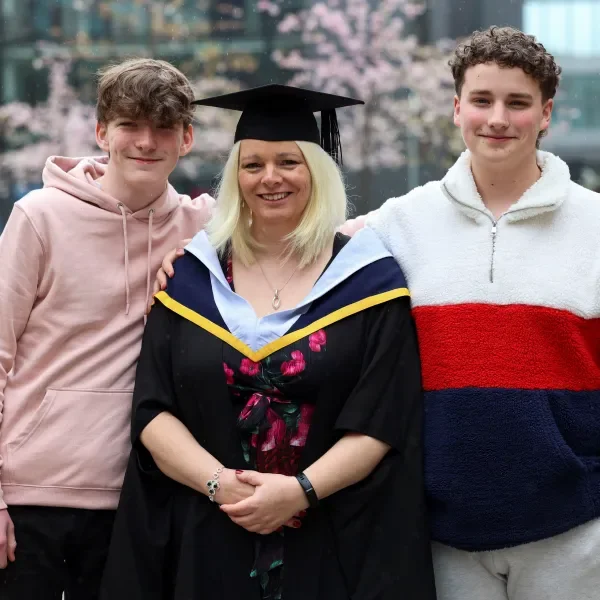Theresa O'Donohoe

“I can’t say I was scared,” says climate activist Theresa O’Donohoe, when asked about taking on a Master’s after many years away from education. What worried her the most was “will I have the time?” Theresa’s friends kept telling her to go for DCU’s MSc in Climate Change: Policy, Media and Society, saying it would be “perfect for you.” But as a lone parent living with her children in Co Clare, distance was a major issue. When the pandemic hit, however, the course went online. This allowed her the freedom to study from home, and securing a scholarship was the final piece of the DCU jigsaw. Theresa has been heavily involved in climate action for over 15 years. She was one of the founders of the An Taisce Climate Committee, and has been active with the Transition Towns Movement, the Public Participation Networks, and Futureproof Clare. One of her proudest achievements was developing the Peoples Energy Charter - a campaign that achieved greater community input on national energy policy regarding energy infrastructure. The MSc gave Theresa a chance to bring her hands-on experience of policy and projects to the table and to get “the benefit of my own research.” Her dissertation examined the impact on national policy of the People's Energy Charter, the movement that she kickstarted in 2013. “I found it fulfilling to be able to test my own work academically,” she says. The Master’s was not without its challenges. Theresa was diagnosed with epilepsy while she was in secondary school, which has had an impact on her education over the years. She describes DCU staff as “very supportive” and she appreciated being able to access supports from DCU Disability and Learning Support Service. Although she enjoyed the course, it was a tough time, personally. “It was difficult, because my mother was dying at the same time. So the whole time through the two years of the Master’s I was up and down to Dublin. So I actually did quite a bit of [my study] in her attic room while looking after her.” Looking back on her DCU experience overall, Theresa is very positive. She particularly liked the course modules dealing with the psychology behind engagement with climate action, and the ways in which information on this issue is communicated. “I loved doing the course, and I loved the class and doing projects with them in the workshops, and the breakout rooms were great,” she says. “I'm delighted to have a qualification in what I do as a volunteer.” New job opportunities are opening up in rural areas in the area of climate change, and Theresa says she is “tentatively embracing the possibilities that come from this Master's degree.” After years of unpaid work in the field, Theresa believes she can now forge a career in the sector. “To be applying for a job in rural Ireland that actually is to do with climate change is great. If I had this Master’s 5 years ago, the only place I’d get a job would be in Dublin.”
DCU Prospectus - Back to MSc in Climate Change: Policy, Media and Society
